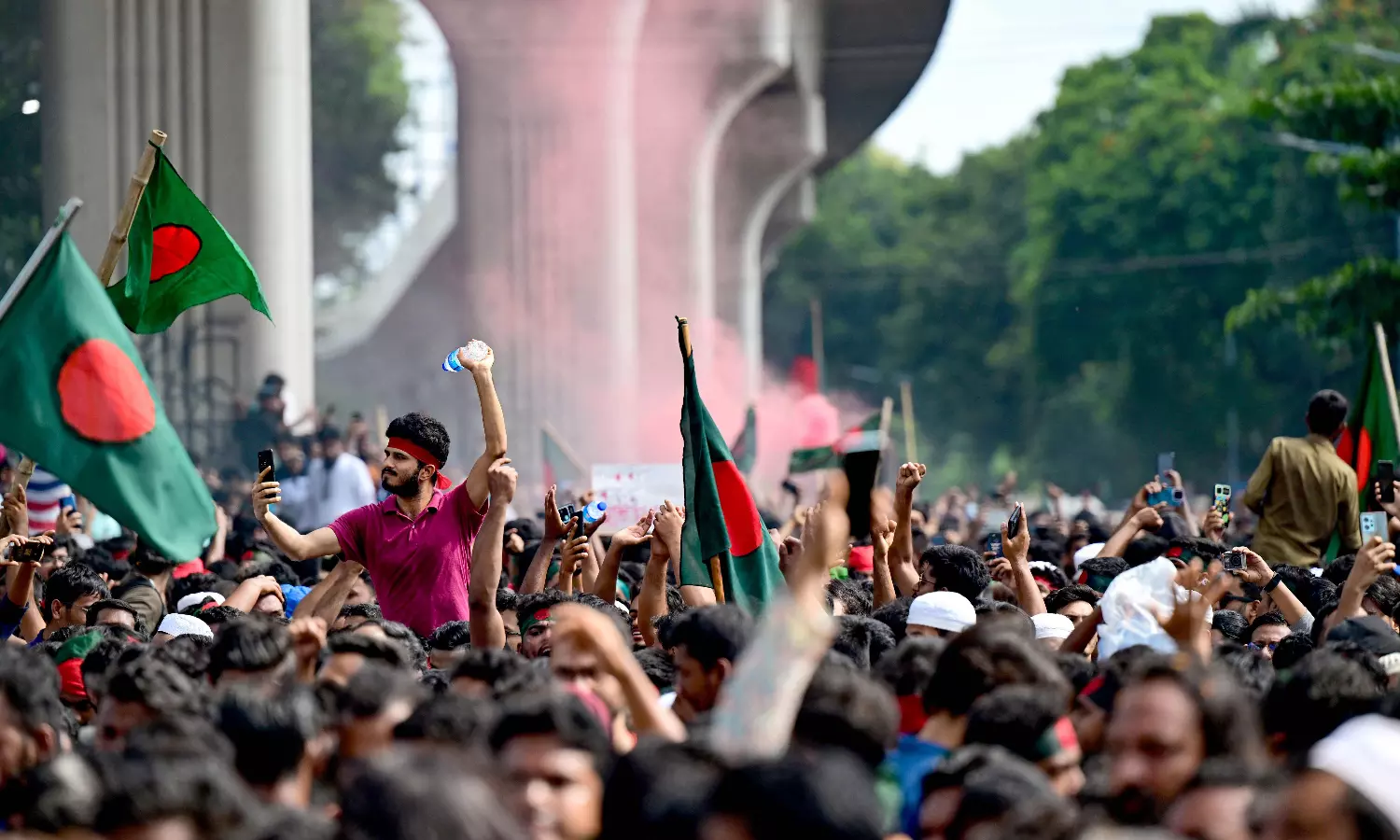Bangladesh's Shift Towards China and Pakistan: New Challenges for India

NEW DELHI: The eventual formation of a pro-Pakistan and pro-China government comprising the anti-India Bangladesh Nationalist Party (BNP) and Jamaat-e-Islami in Dhaka appears to be a foregone conclusion and will be the latest in a series of challenges to confront New Delhi in the neighbourhood.
This comes as China pushes its influence even further in the South Asian region.
The fall of the pro-India Sheikh Hasina and her Awami League government in Dhaka comes as the latest shock for India, just months after the pro-India government in the southwestern maritime neighbour Maldives was defeated in the presidential polls in the archipelago nation late last year.
In an attempt to keep pace with the enormously superior Chinese financial muscle, New Delhi, especially in the past decade of the Modi government's tenures, has been focussing on boosting development assistance to its neighbours like Bangladesh, the Maldives, Sri Lanka, Nepal and Bhutan.
In the past two decades, India has also invested heavily in infrastructure projects in Afghanistan.
The fulcrum of Beijing's policy in the neighbourhood has been its ambitious Belt and Road Initiative (BRI) global connectivity project, of which the China-Pakistan Economic Corridor (CPEC) has been the flagship project. But Beijing's all-weather friendship with Islamabad for the past several decades has been of a strategic nature seen as largely aimed against India and is therefore different from its ties with other South Asian nations, where it has gained enormous leverage in the past few decades.
With the fall of the monarchy in Nepal nearly two decades ago, the Nepalese polity came to be dominated by three major political parties, of which two are Communist and enjoy close and fraternal ties with the ruling Chinese Communist Party in Beijing.
Seizing the opportunity, China entrenched itself in India's Himalayan neighbour as one of the largest sources of foreign direct investment (FDI).
China dramatically increased its influence in India's southern maritime neighbour Sri Lanka about 15 to 16 years ago, in the final stages of the insurgency there when the Sri Lankan Army was engaged in a door-or-die battle against the rebel LTTE.
According to reports then, Beijing gave crucial military assistance to the Sri Lankan government during the then presidency of Mahinda Rajapaksa to enable the Sri Lankan Army to decimate the LTTE in 2009. Beholden to Beijing, the Rajapaksa brothers contributed hugely to the expansion of Chinese influence in the island nation in the form of huge infrastructure projects that led to accumulating debt for Sri Lanka, while Beijing secured a 99-year lease for the Hambantota port there that sent alarm bells ringing in New Delhi. Sri Lanka eventually went bankrupt by 2022 during the presidency of Gotabaya Rajapaksa and the Prime Ministership of Mahinda Rajapaksa and it was left to New Delhi to bail Colombo out with a $4 billion assistance package. However, Beijing remains one of the largest creditors to a debt-ridden Sri Lanka and securing Chinese cooperation remains a vital part of Sri Lanka's attempts at debt restructuring.
China's influence in the tiny archipelago nation of Maldives also rapidly expanded during the presidency of Abdulla Yameen in the previous decade, when it funded ambitious infrastructure projects that again resulted in piling debt for the Maldives. But with Yameen's defeat at the hands of the pro-India Ibrahim Mohamed Solih, who became President in 2018, Chinese ambitions there suffered a setback. But a resilient China made a stunning comeback last year when was defeated by the pro-China Mohamed Muizzu, who became President and immediately proceeded to visit Beijing to declare his support and ask for financial assistance for his tiny nation.
India's trusted friend Bhutan and its strategic position came under the spotlight during the military face-off between India and Chinese troops in Doklam in Bhutanese territory in 2017. China then began a concerted push to improve ties with Bhutan and settle its boundary dispute with that nation. In 2021, Bhutan signed a memorandum of understanding with China on a “three-step roadmap for expediting the Bhutan-China boundary negotiations”. In the past few years, India has further stepped up its development assistance to Bhutan to keep Chinese overtures at bay.
